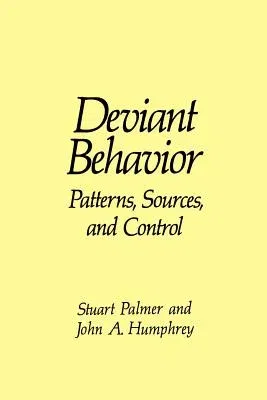J a Humphrey
(Author)Deviant Behavior: Patterns, Sources, and Control (Softcover Reprint of the Original 1st 1990)Hardcover - Softcover Reprint of the Original 1st 1990, 31 January 1990

Qty
1
Turbo
Ships in 2 - 3 days
In Stock
Free Delivery
Cash on Delivery
15 Days
Free Returns
Secure Checkout

Print Length
294 pages
Language
English
Publisher
Springer
Date Published
31 Jan 1990
ISBN-10
0306432854
ISBN-13
9780306432859
Description
Product Details
Authors:
Book Edition:
Softcover Reprint of the Original 1st 1990
Book Format:
Hardcover
Country of Origin:
US
Date Published:
31 January 1990
Dimensions:
23.39 x
15.6 x
1.68 cm
ISBN-10:
0306432854
ISBN-13:
9780306432859
Language:
English
Location:
New York, NY
Pages:
294
Publisher:
Weight:
444.52 gm